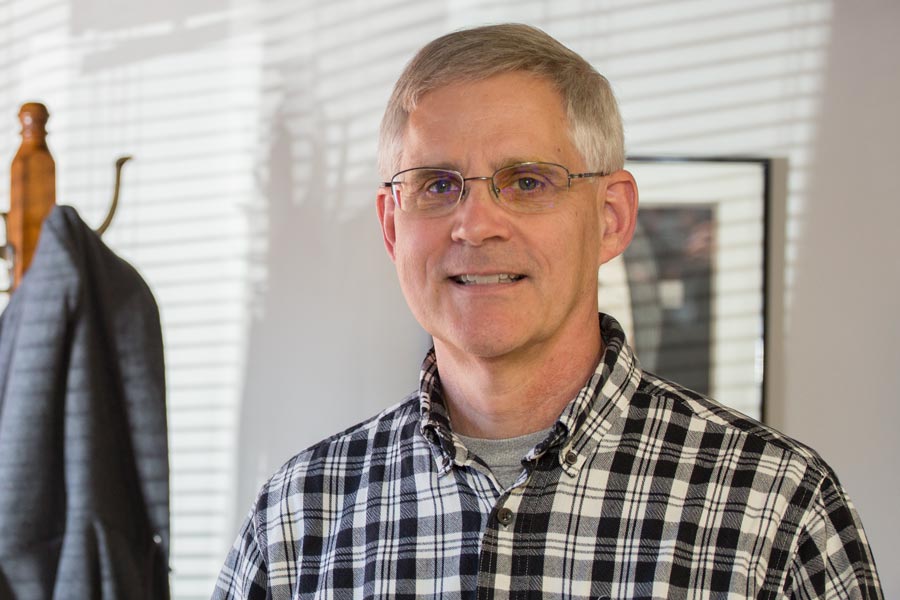

Faculty Member James Thrall Explores Relationship Between Modernity and Spirituality
A Knox College faculty member has written a new book that delves into the relationship between mysticism and modernity in the evolution of early 20th-century ideology. Knight Distinguished Associate Professor for the Study of Religion & Culture James H. Thrall published his newest work Mystic Moderns: Agency and Enchantment in Evelyn Underhill, May Sinclair, and Mary Webb. Thrall is chair of the religious studies program at Knox.
Thrall’s interest in his book’s subject was spurred during his doctoral studies at Duke University. “I was looking for a topic for my dissertation and that's what this is based on,” he said. “I was particularly interested in the early 20th century period because there's such a fascinating mixture of paranormal experimentation, new scientific developments, and mystical experimentation all interweaved to the point where they even overlap, so you'd have scientific study of paranormal.” He also noted that his focus on feminist theology primed him to explore the works of scholars Evelyn Underhill, May Sinclair, and Mary Webb in particular.
Thrall explained that these three scholars were exploring a self-constructed, discovered, and authenticating brand of mysticism. “It seemed not unlike contemporary explorations of spirituality,” he noted. “So, to varying degrees, each of them was having to self-construct a system or understanding of what was authentic with different levels of help from existing tradition.”
When asked about this book’s relationship with his future studies, Thrall noted that this research is closely related to his teaching at Knox. Specifically, in his course Spiritual Autobiography, students explore the creative processes by which authors attempt to describe the construction, evolution, and/or deconstruction of their religious or spiritual identities. He explained, too, that his research has taken a somewhat new direction toward the interaction between science fiction and religion, as he is now writing a textbook on the subject.
“So there's that overlap, this idea of the fantastical and the supernatural and its relation to religious beliefs and forms,” said Thrall.
Thrall went on to say that these scholars were searching for ways to make spirituality more appealing to more progressive or modern thinkers of the era by giving numerous perspectives on what it could mean to be spiritual but not religious. “There's almost a fear of the institutional structures, even though all three of these scholars would have seen these structures, to some extent, as being helpful frameworks, and all three of them were, more or less, negotiating with the tradition of the time, which would have been Christianity.”
“All of these women would say [that] what they were exploring was the driving impulse that underlies traditional, institutional religious practice,” he said. “For a lot of people, the specifics of the institutional structure become off-putting. They're associated with boredom, being hurt, misunderstanding, or it doesn't speak to their particular circumstances, their lives. It's not meaningful. I think that's the biggest attraction of general spirituality and mysticism; that there's a hunger for something.”
Thrall has been published in a variety of academic journals and has presented his papers at conferences internationally. Mystic Moderns was published by Lexington Books, an imprint of Rowman & Littlefield, in January 2020. More information about Thrall’s book can be found on the publisher’s website.
Published on April 10, 2020
by Sarah Lohmann '21

